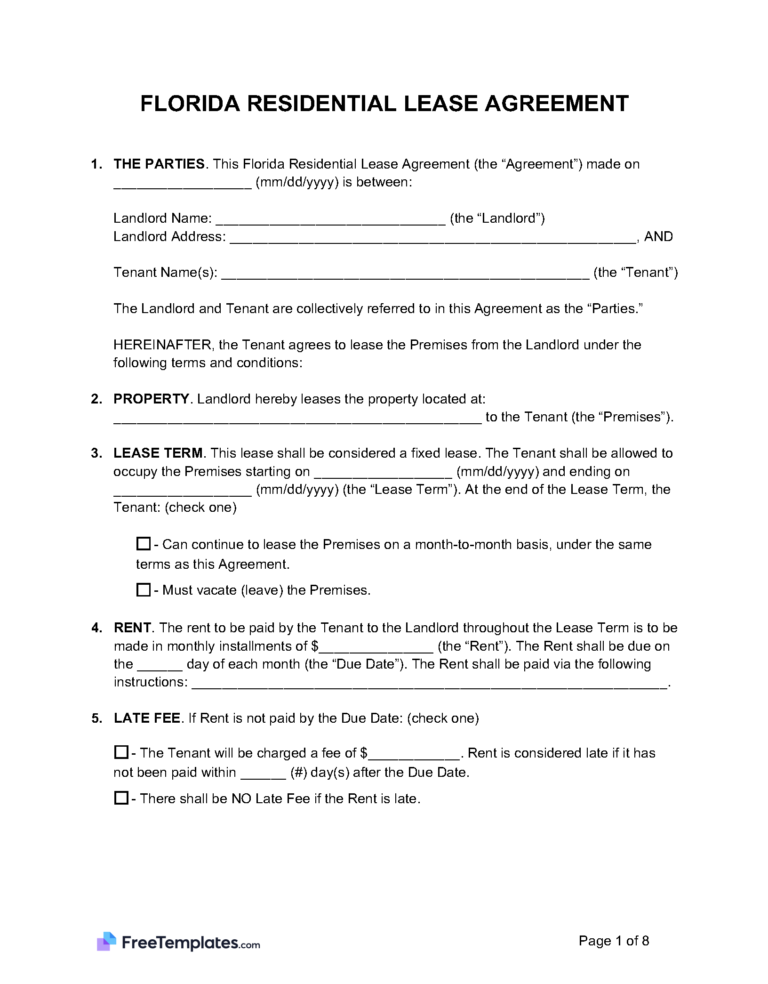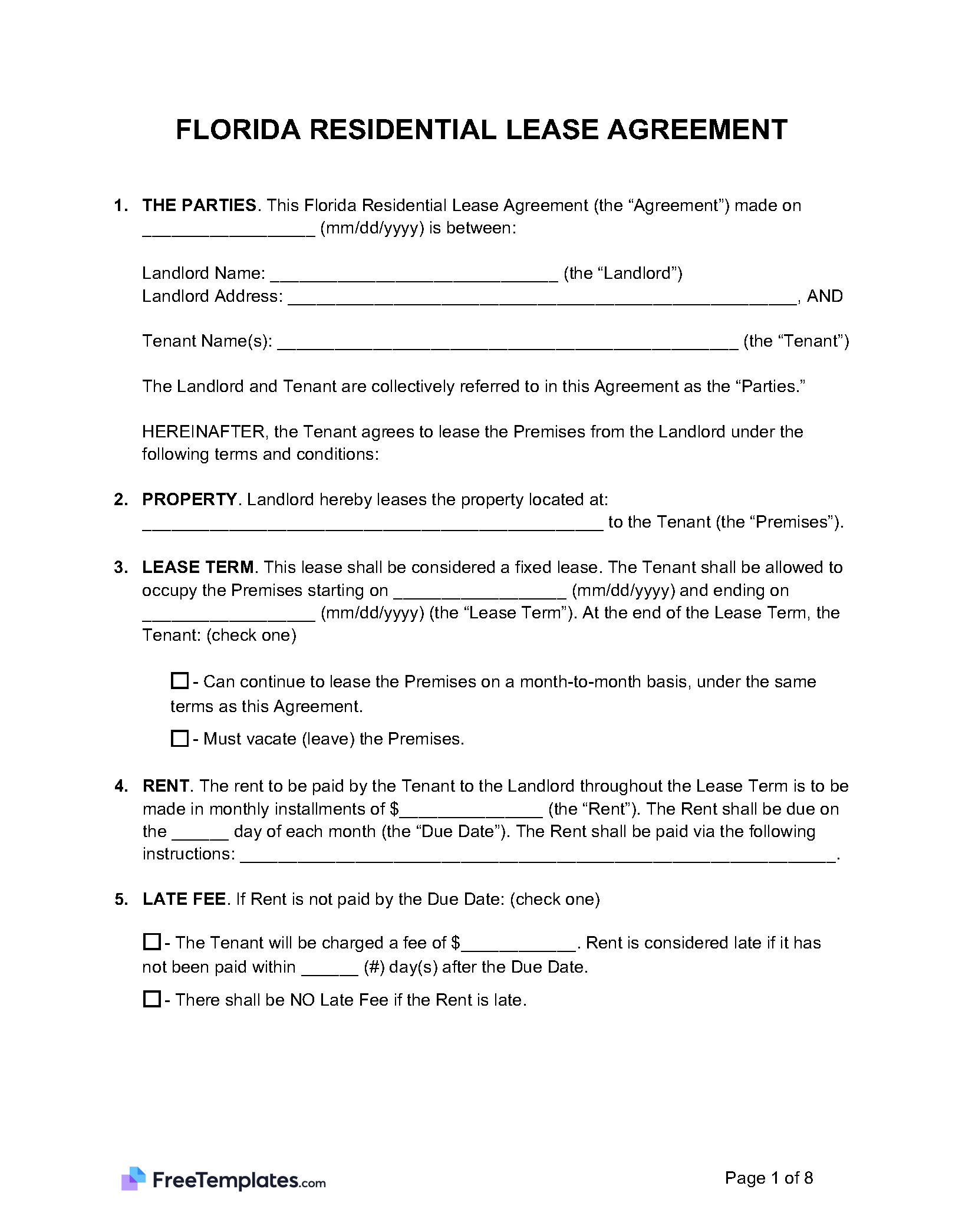By Type (6)
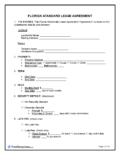 Standard Lease Agreement – A legally binding contract between a tenant and a landlord for a fixed period, typically 12 months, for a residential property. Standard Lease Agreement – A legally binding contract between a tenant and a landlord for a fixed period, typically 12 months, for a residential property.
|
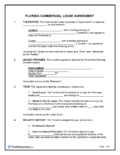 Commercial Lease Agreement – A legal document that outlines the terms and conditions for renting a property for a business. Commercial Lease Agreement – A legal document that outlines the terms and conditions for renting a property for a business.
|
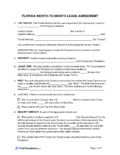 Month-to-Month Lease Agreement – A monthly rental arrangement that provides a flexible rental contract to both the tenant and the landlord. Typically, the legal document renews monthly, unless terminated by either party, with proper notice as disclosed in the lease. Month-to-Month Lease Agreement – A monthly rental arrangement that provides a flexible rental contract to both the tenant and the landlord. Typically, the legal document renews monthly, unless terminated by either party, with proper notice as disclosed in the lease.
|
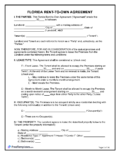 Rent-to-Own Agreement – A contract allowing a tenant to rent a property with the option to purchase it at a later date, typically at a predetermined price. Rent-to-Own Agreement – A contract allowing a tenant to rent a property with the option to purchase it at a later date, typically at a predetermined price.
|
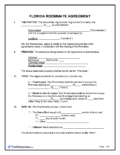 Roommate Agreement – A legal document between individuals living together in a property. Roommate Agreement – A legal document between individuals living together in a property.
|
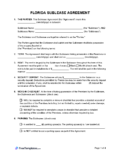 Sublease Agreement – A contract where a tenant rents out all or part of a rental property to another person, known as the subtenant, with the original tenant retaining some legal responsibilities under the original lease agreement. Sublease Agreement – A contract where a tenant rents out all or part of a rental property to another person, known as the subtenant, with the original tenant retaining some legal responsibilities under the original lease agreement.
|
Disclosures (3)
Landlord’s Contact Details – Landlords are also required to disclose the name and address of the property owner or the person authorized to enter into a rental agreement on the landlord’s behalf. (Fla. Stat. § 83.50)
Landlord’s Obligation to Maintain Premises – Landlord must follow all building, housing, and health codes during the tenancy. If there are no specific codes, they must keep the property’s structural elements (like roofs, windows, and floors) in good repair and ensure the plumbing works properly. (Fla. Stat. § 83.51)
Lead-Based Paint Disclosure – Landlords must inform tenants of the presence of any known lead-based paint hazards for properties built before 1978.
Security Deposit
Maximum Amount – There is no state-mandated maximum limit for security deposits. Landlords are free to set the amount of security deposit they require as long as it is within the limits allowed by local ordinances, if any, and it is clearly stated in the lease agreement.
Holding Funds – When a tenant gives money as security or advance rent, the landlord must notify the tenant, either in the lease agreement or within 30 days of receiving the money, about where the money is being held and whether the tenant is entitled to interest. If the landlord changes the location or manner of holding the money, they must notify the tenant within 30 days. (Fla. Stat. § 83.49)
Returning to Tenant – When the lease ends and the tenant moves out, the landlord must return it within 15 days, along with any required interest. If the landlord intends to keep part or all of the deposit, they must notify the tenant within 30 days by certified mail. The landlord’s notice must explain why the deposit is kept and how much is claimed. (Fla. Stat. § 83.49)
Landlord Access
General Access – Landlords are required to provide tenants with at least 12 hours’ notice before entering the rental property for non-emergency reasons. The notice must be given in writing unless the tenant has agreed to accept electronic notices. Additionally, landlords must only enter at reasonable times, generally considered to be between 7:30 a.m. and 8:00 p.m., unless otherwise agreed upon. (Fla. Stat. § 83.53(2))
Emergency Access – Landlords can enter the property without notice in case of emergency or for the protection or preservation of the premises. (Fla. Stat. § 83.53(2b))
Abandoned Property – Landlords are allowed to enter the property without giving notice if the tenant is away for half the time covered by a rental payment period. (Fla. Stat. § 83.53(2d))
Paying Rent
Grace Period – Landlords are not required by Florida state law to offer a grace period for rent payments. However, lease agreements can include such provisions if both parties agree upon them.
Maximum Late Fee – Landlords can charge any late fee for overdue rent as long as it is disclosed in the lease agreement.
Returned Checks (NSF) – In Florida, landlords can charge a fee for returned checks, but no specific state statutes set a maximum fee amount. However, the fee must be reasonable and reflect the actual costs incurred by the landlord due to the returned check.
Reasons for Eviction (4)
Non-Payment of Rent – The landlord can start eviction if a tenant fails to pay rent when it is due. The landlord must give the tenant a 3-day notice to pay rent or vacate the premises. (Fla. Stat. § 83.56(3))
Non-Compliance – If a tenant violates a lease agreement term, such as having unauthorized pets or subleasing without permission, the landlord can issue a 7-day notice to cure the violation or vacate the premises. (Fla. Stat. § 83.56(2))
Illegal Activity – If a tenant engages in criminal activity on the premises, such as drug-related offenses, the landlord can issue a 7-day notice to vacate without the option to cure the violation. (Fla. Stat. § 83.56(2a))
Holding Over – If a tenant remains on the property after the lease term has expired, the landlord can issue a notice for termination without cause, typically requiring a 15-day notice for month-to-month tenants or a notice equal to the rental period for fixed-term leases. (Fla. Stat. § 83.57(3))
